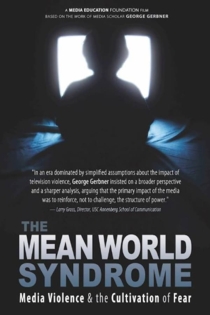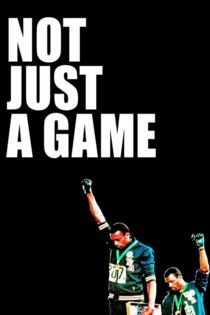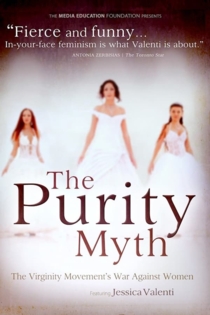
Jeremy Earp
2021The Occupation of the American Mind
Loretta Alper, Jeremy Earp
Roger Waters, Rula Jebreal
Over the past few years, Israel's ongoing military occupation of Palestinian territory and repeated invasions of the Gaza strip have triggered a fierce backlash against Israeli policies virtually everywhere in the world—except the United States. The Occupation of the American Mind takes an eye-opening look at this critical exception, zeroing in on pro-Israel public relations efforts within the U.S. Narrated by Roger Waters and featuring leading observers of the Israeli-Palestinian conflict and U.S. media culture, the film explores how the Israeli government, the U.S. government, and the pro-Israel lobby have joined forces, often with very different motives, to shape American media coverage of the conflict in Israel's favor, and provides a sweeping analysis of Israel's decades-long battle for the hearts, minds, and tax dollars of the American people in the face of widening international condemnation of its increasingly right-wing policies.
The Occupation of the American Mind
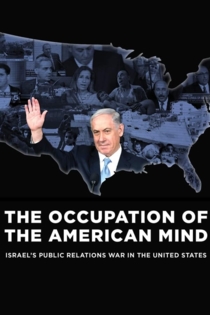
Consuming Kids: The Commercialization of Childhood
Adriana Barbaro, Jeremy Earp
Daniel Acuff, Enola Aird
Consuming Kids throws desperately needed light on the practices of a relentless multi-billion dollar marketing machine that now sells kids and their parents everything from junk food and violent video games to bogus educational products and the family car. Drawing on the insights of health care professionals, children's advocates, and industry insiders, the film focuses on the explosive growth of child marketing in the wake of deregulation, showing how youth marketers have used the latest advances in psychology, anthropology, and neuroscience to transform American children into one of the most powerful and profitable consumer demographics in the world. Consuming Kids pushes back against the wholesale commercialization of childhood, raising urgent questions about the ethics of children's marketing and its impact on the health and well-being of kids.
Consuming Kids: The Commercialization of Childhood
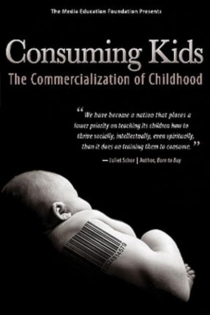
War Made Easy: How Presidents & Pundits Keep Spinning Us to Death
Loretta Alper, Jeremy Earp
War Made Easy reaches into the Orwellian memory hole to expose a 50-year pattern of government deception and media spin that has dragged the United States into one war after another from Vietnam to Iraq. revealing in stunning detail how the American news media have uncritically disseminated the pro-war messages of successive presidential administrations.
War Made Easy: How Presidents & Pundits Keep Spinning Us to Death
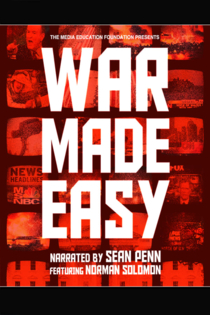
Hijacking Catastrophe: 9/11, Fear & the Selling of American Empire
Sut Jhally, Jeremy Earp
This documentary places the Bush Administration's original justifications for war in Iraq within the larger context of a two-decade struggle by neo-conservatives to dramatically increase military spending while projecting American power and influence globally by means of force.
Hijacking Catastrophe: 9/11, Fear & the Selling of American Empire
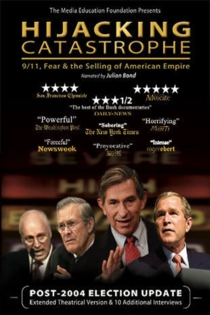
Blood and Oil
Jeremy Earp
Ronald Reagan, Osama bin Laden
The notion that oil motivates America's military engagements in the Middle East is often disregarded as nonsense or mere conspiracy theory. In Blood and Oil, bestselling author and Nation magazine defense correspondent Michael T. Klare challenges this conventional wisdom and corrects the historical record. The film unearths declassified documents and highlights forgotten passages in prominent presidential doctrines to show how concerns about oil have been at the core of American foreign policy for more than 60 years -- rendering our contemporary energy and military policies virtually indistinguishable. In the end, Blood and Oil calls for a radical re-thinking of US energy policy, warning that unless we change direction, we stand to be drawn into one oil war after another as the global hunt for diminishing world petroleum supplies accelerates.
Blood and Oil
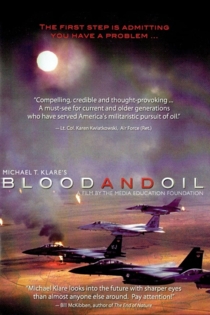
Reel Bad Arabs: How Hollywood Vilifies a People
Sut Jhally, Jeremy Earp
Jack Shaheen
This documentary dissects a slanderous aspect of cinematic history that has run virtually unchallenged form the earliest days of silent film to today's biggest Hollywood blockbusters. The film explores a long line of degrading images of Arabs--from Bedouin bandits and submissive maidens to sinister sheikhs and gun-wielding "terrorists"--along the way offering devastating insights into the origin of these stereotypic images, their development at key points in US history, and why they matter so much today.
Reel Bad Arabs: How Hollywood Vilifies a People
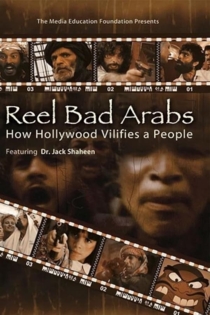
The Great White Hoax
Jeremy Earp
Tim Wise
THE GREAT WHITE HOAX, featuring acclaimed anti-racist educator and author Tim Wise, explores how American political leaders of both parties have been tapping into white anxiety, stoking white grievance, and scapegoating people of color for decades to divide and conquer working class voters and shore up political support.
The Great White Hoax

Digital Disconnect
Jeremy Earp
Robert McChesney
In this era of Facebook privacy breaches, "fake news" and filter bubbles, this essential film trains its sights on the relationship between the internet and democracy. Tracing the internet's history as a publicly funded government project in the 1960s to its full-scale commercialization today, the film traces how the revolutionary, democratizing potential of the internet has been radically compromised by the growing and unaccountable power of a handful of telecom and tech monopolies.
Digital Disconnect
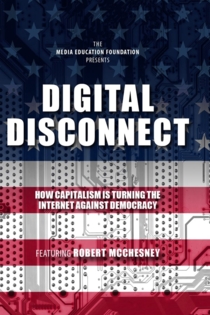
The Bystander Moment
Jeremy Earp
Jackson Katz
The #MeToo movement has shined much-needed light on the pervasiveness of sexual harassment and abuse and created unprecedented demand for gender violence prevention models that actually work. THE BYSTANDER MOMENT tells the story of one of the most prominent and proven of these models - the innovative bystander approach developed by pioneering scholar and activist Jackson Katz and his colleagues at Northeastern University's Center for the Study of Sport in Society in the 1990s.
The Bystander Moment
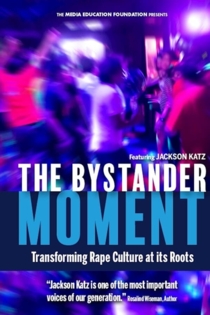
Advertising at the Edge of the Apocalypse
Sut Jhally, Jeremy Earp
Sut Jhally
In this highly anticipated sequel to his groundbreaking, ADVERTISING AND THE END OF THE WORLD, media scholar Sut Jhally explores the devastating personal and environmental fallout from advertising, commercial culture, and rampant American consumerism. Ranging from the emergence of the modern advertising industry in the early 20th century to the full-scale commercialization of the culture today, Jhally identifies one consistent message running throughout all of advertising: the idea that corporate brands and consumer goods are the keys to human happiness. He then shows how this powerful narrative, backed by billions of dollars a year and propagated by the best creative minds, has blinded us to the catastrophic costs of ever-accelerating rates of consumption.
Advertising at the Edge of the Apocalypse
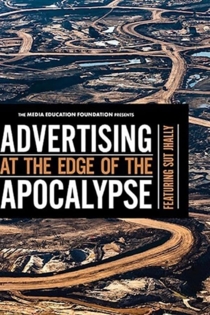
The Mean World Syndrome
Jeremy Earp
George Gerbner
For years, debates have raged among scholars, politicians, and concerned parents about the effects of media violence on viewers. Too often these debates have fallen into simplistic battles between those who claim that media images directly cause violence and those who argue that activists exaggerate the impact of media exposure. Based on interviews conducted with George Gerbner before his death in 2005, the film urges us to think about media effects in more nuanced ways. In contrast to behaviorist models that see media violence as causing real-world violence, and limited effects models that question the impact of media altogether, Gerbner encourages us to move outside the frame of this debate to consider how the repetitive stories media tell constitute a pervasive cultural environment - a landscape of ritualized, often violent images that have the power to cultivate how we see and understand the world.
The Mean World Syndrome
